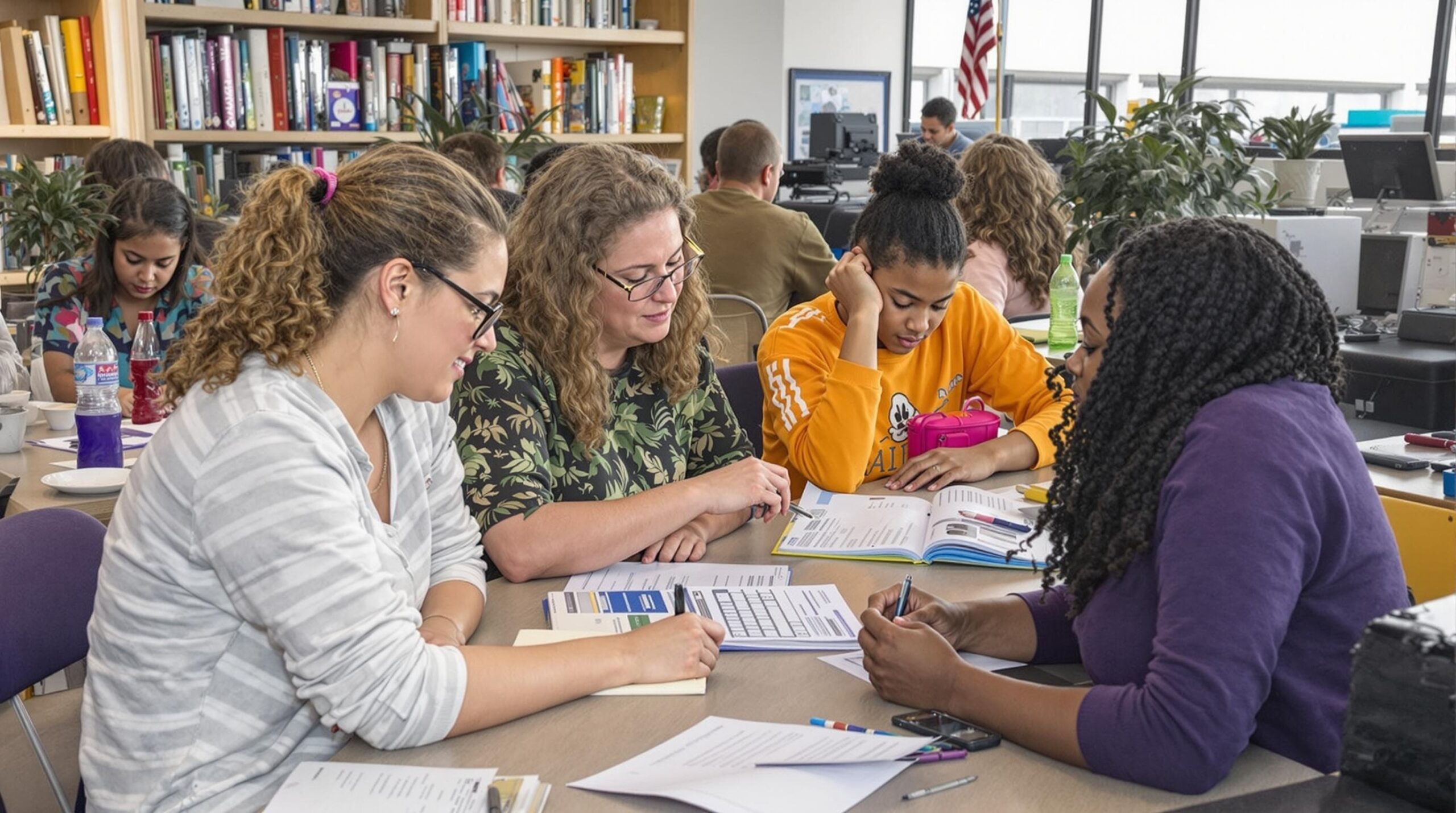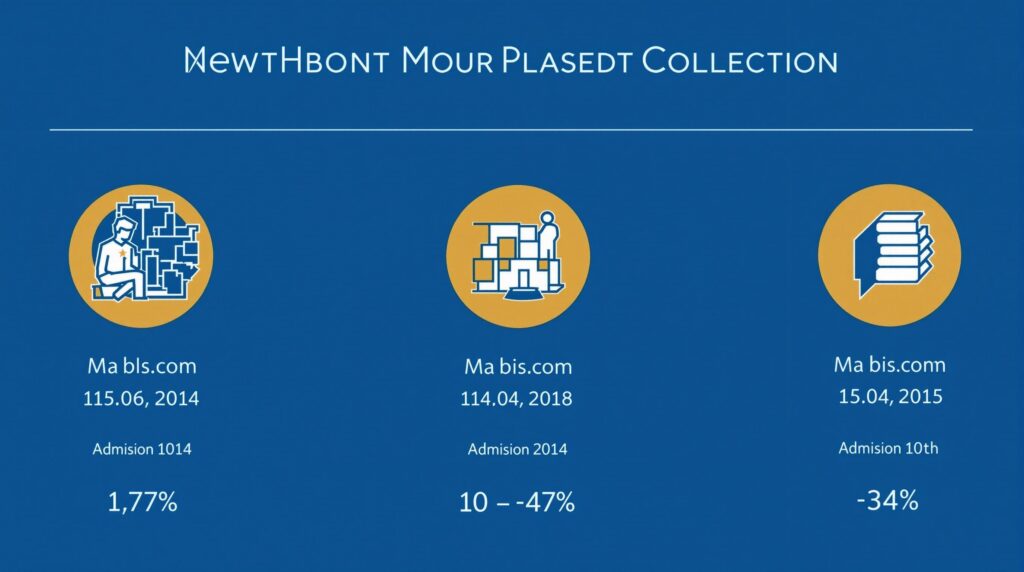Rhode Island’s educational landscape is evolving with substantial funding channels that benefit both students and educators in 2025. The RI Foundation stands at the forefront, offering strategic grants to address systemic barriers, enhance career pathways, and create collaborative educational initiatives across the state.
Key Takeaways
- The RI Foundation’s Catalyst Grant provides up to $250,000 annually for collaborative education projects with priority given to historically marginalized communities.
- Career Exploration Equity Grants allocate $150,000 in FY25, covering 100% of costs up to $5,000 for K-12 career programs.
- The Urban Residency Initiative received $300,000 to diversify Rhode Island’s teacher workforce, aiming to expand to over 350 participants by 2025.
- Newport County Fund offers $220,000 in grants up to $10,000 for local educational programs in 2025.
- Free leadership development programs through the Institute for Nonprofit Practice offer career advancement opportunities with application deadlines in spring 2025.
Rhode Island Education Grants Overview: What’s Available in 2025
The educational funding landscape in Rhode Island has expanded significantly for 2025, with the RI Foundation leading several initiatives. Their flagship Catalyst Grant program offers up to $250,000 annually for collaborative education projects that address systemic barriers across the state. This program has allocated over $1 million annually to cross-sector partnerships focusing on educational equity and innovation.
For health-focused educational initiatives, the Specialized Health Funds provide grants ranging from $10,000 to $50,000 for programs addressing health education and disparities in schools. The Newport County Fund represents another significant opportunity, offering $220,000 in 2025 with individual grants up to $10,000 for local educational programs.
Career-focused funding has also received substantial attention, with the Governor’s Workforce Board allocating $150,000 for Career Exploration Equity Grants in FY25. These grants reimburse 100% of costs up to $5,000 for K-12 career exploration programs, making them particularly accessible for schools with limited resources.

Securing Funding for Collaborative Educational Initiatives
When applying for Rhode Island’s collaborative education grants, it’s essential to understand that priority is given to initiatives led by historically marginalized communities. To qualify for these competitive funds, collaborations must include Rhode Island-based lead organizations with demonstrable track records of impact in their communities.
The University of Rhode Island’s Urban Residency Initiative serves as an excellent example, having secured $300,000 for teacher training pathways specifically designed to increase diversity in the education workforce. Similarly, the Hayden Foundation has allocated $1 million in 2025 grants including funding for trauma-informed teaching approaches and advanced technology like Scituate High School’s 4D medical anatomage table.
Successful grant application strategies should emphasize innovative partnerships between multiple sectors. The most competitive applications typically include:
- Clear metrics for measuring impact and outcomes
- Sustainable funding models beyond the grant period
- Partnerships between nonprofits, government agencies, and academic institutions
- Direct involvement of the communities being served
- Alignment with Rhode Island’s education priorities
Career and Technical Education: Funding Pathways to High-Demand Jobs
Rhode Island has made significant investments in career and technical education to address critical workforce shortages in high-demand fields. The Governor’s Workforce Board allocated $150,000 for Career Exploration Equity Grants in FY25, while the Real Skills for Youth Program received a substantial $2.7 million for employer-educator partnerships that provide students with real-world work experiences.
At the federal level, U.S. Representative Seth Magaziner has advocated for $64.4 million in federal CTE funding to support Rhode Island’s technical education programs. This push is backed by compelling economic data: every $1 invested in CTE yields $12.20 in economic benefits for the state, according to the Governor’s Workforce Board.
Target industries for these funding initiatives include healthcare, information technology, and advanced manufacturing—areas facing the most severe labor shortages in the state. Schools looking to develop new CTE programs should align their proposals with these high-growth sectors to maximize their chances of securing funding.
Diversifying Rhode Island’s Education Workforce
The Urban Residency Initiative represents one of the most significant investments in teacher diversity in Rhode Island’s history, having received $300,000 to recruit and train educators of color. This program is expected to expand dramatically, serving between 352-409 participants by 2025, according to projections from the RI 2030 Report.
Research from Johns Hopkins University has shown that same-race teacher-student matches can reduce dropout rates by 29%, providing a compelling case for these diversity initiatives. The Urban Residency Initiative uses an innovative dual-enrollment model that allows high school students to earn college credits while simultaneously training as future teachers.
To secure funding for similar programs, proposals should explicitly align with state goals to close achievement gaps in urban districts. Successful applications typically include:
- Detailed recruitment strategies for educators of color
- Mentorship components pairing candidates with experienced teachers
- Partnerships with higher education institutions
- Clear pathways to certification and employment
- Data tracking mechanisms to measure impact
Supporting After-School and Community Learning Programs
The Nita M. Lowey 21st Century Community Learning Centers program provides substantial federal funding for after-school academic enrichment, with priority given to high-poverty schools and communities. Organizations running exceptional programs can gain national recognition through the Subgrantee Spotlight Program, which has quarterly application deadlines beginning June 5, 2025.
The Newport County YMCA’s afterschool program demonstrates how these funds can be effectively utilized, combining rigorous academic support with engaging extracurricular activities. This program has shown measurable improvements in student outcomes while addressing critical needs for working families.
When developing proposals for after-school funding, organizations should highlight measurable outcomes that align with state priorities:
- Improved standardized test scores
- Increased school attendance rates
- Enhanced parental engagement
- Development of social-emotional skills
- Increased access to enrichment opportunities for underserved communities
Higher Education Access and Scholarships
Rhode Island has expanded its commitment to making higher education accessible through several scholarship programs. The Hope Scholarship supported 245 students in the 2023-2024 academic year and is projected to reach 352-409 recipients in 2025, providing critical financial support for low and middle-income students.
The RI Promise Scholarship offers free tuition at the Community College of Rhode Island, a program that has been made permanent through legislative action to increase educational access. These programs are increasingly being integrated with career pathways, as seen in CCRI’s cybersecurity program that combines scholarship funding with internship placements at major employers like Raytheon.
URI’s Urban Residency Initiative takes this approach further by integrating scholarships with guaranteed job placements in partner school districts, creating a seamless pipeline from education to employment. This model represents the future of higher education funding in Rhode Island, where financial support is directly tied to workforce development goals.
Educational Leadership Development Opportunities
The Institute for Nonprofit Practice, in partnership with the RI Foundation, offers free leadership development programs specifically designed for educators and nonprofit professionals. These include the Core Certificate Program (application deadline: April 25, 2025) and the RISE Program (application deadline: May 9, 2025), both of which provide valuable professional development at no cost to participants.
The Equity Leadership Initiative+ deserves special attention, as it prioritizes professionals of color in the nonprofit and education sectors. According to the Rhode Island Foundation, ELI+ alumni have seen a 40% average increase in their organizational revenue after completing the program, demonstrating its tangible impact on career advancement.
For individual educators, the Milken Educator Award provides $25,000 unrestricted prizes to recognize exceptional teaching talent. Maria Santonastaso was named Rhode Island’s 2024 recipient for her innovative, data-driven approach to literacy instruction—a model that other educators can look to when developing their own professional practices.
Shaping the Future: Education Funding Reform and Advocacy
The Rhode Island Foundation has partnered with the Annenberg Institute to develop a new education funding formula that addresses existing inequities in the state’s public education system. This work is being guided by a Blue Ribbon Commission tasked with making recommendations for comprehensive funding reforms.
Public input is being actively sought through a Conversation Toolkit, with submissions due by May 30, 2025. This represents a significant opportunity for educators and community members to influence the future of education funding in Rhode Island.
The case for reform is compelling: Rhode Island’s per-pupil spending of $16,000 lags behind neighboring Massachusetts at $18,000, despite similar costs of living. Advocates are calling for weighted funding mechanisms that provide additional resources for English language learners, students from low-income households, and those with special educational needs to achieve true equity in educational outcomes.
Sources
fundsforngos.org – Rhode Island Foundation Announces Catalyst Grant
uri.edu – URI College of Education Awarded $300,000 Grant to Diversify State’s Teacher Workforce
gwb.ri.gov – Programs Services Career Exploration Equity Grants
ed.gov – Nita M. Lowey 21st Century Community Learning Centers



